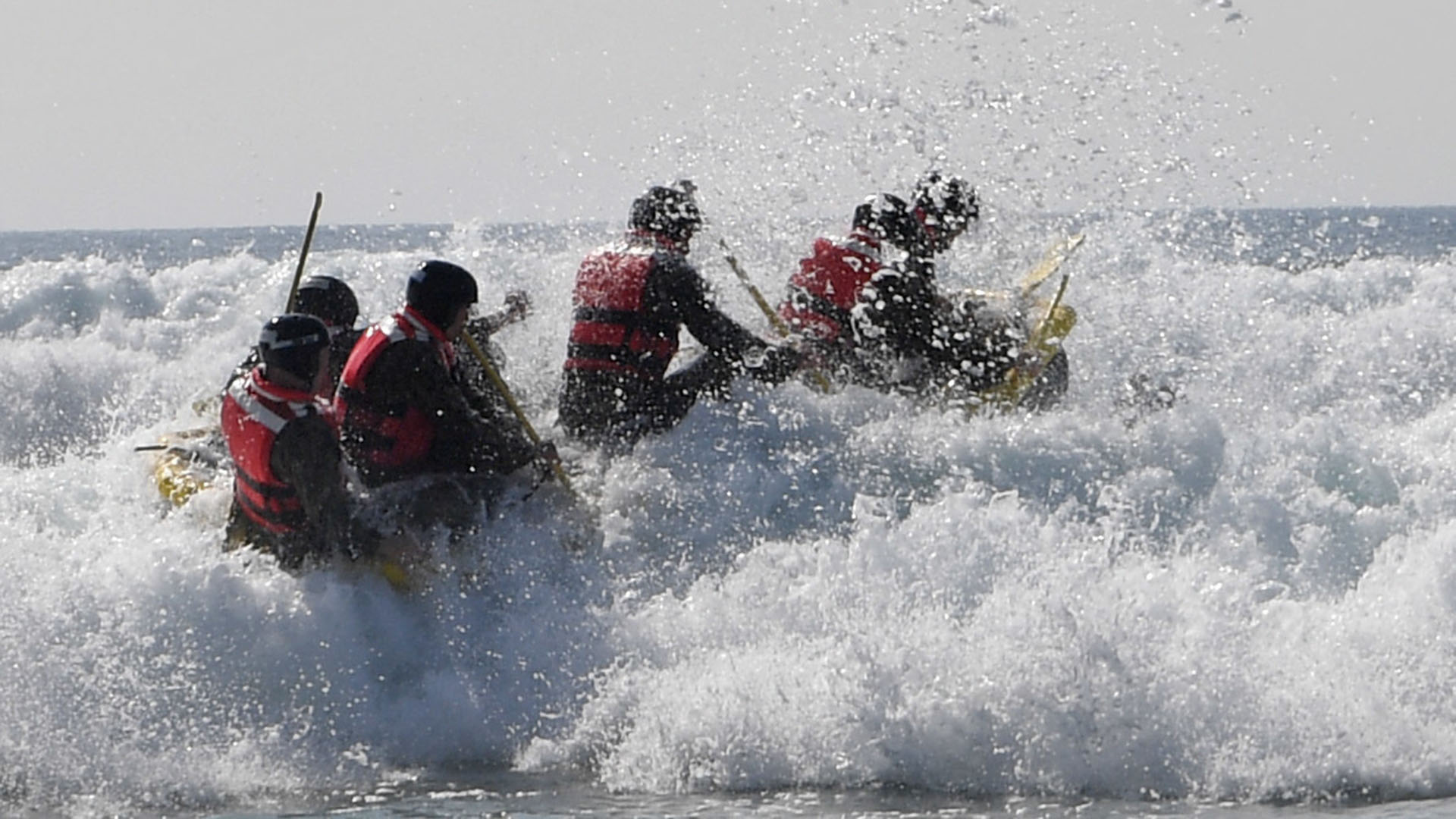

Navy Capt. Bradley Geary, who oversaw the infamously grueling training school for Navy SEALs, will face a board of inquiry on Nov. 11 for the death of a recruit following the Hell Week portion of Basic Underwater Demolition/SEAL training, or BUD/S, his attorney said.
Geary led the Naval Special Warfare Center’s Basic Training Command at Naval Amphibious Base Coronado in San Diego, California, which directly oversees BUD/S, when SEAL candidate Kyle Mullen died of pneumonia on Feb. 4, 2022 within hours of finishing Hell Week. The Navy officer is accused of failing to properly supervise medical personnel, leading to Mullen’s grievous bodily injury or death.
The board of inquiry will determine whether Geary committed any misconduct and recommend whether to retain or separate him through an administrative discharge. The Ice Man Substack by Seth Hettena first reported that a date for Geary’s board of inquiry had been set.
A Naval Education and Training Command investigation later determined that Mullen died of pneumonia and that even though human growth hormone and other medication were found in Mullen’s car, he had “died in the line of duty, and not due to his own misconduct.”
An Oct. 12, 2022 Navy news release also said that “Performance Enhancing Drugs were not a contributing cause of Mullen’s death.”
Subscribe to Task & Purpose today. Get the latest military news and culture in your inbox daily.
But Jason Wareham, Geary’s attorney, claimed he has evidence showing that someone in the Navy secretary’s office ordered that the wording of the Navy’s October 2022 news release be changed to rule out performance enhancing drugs as a causal factor in Mullen’s death.
Wareham has submitted a request to have Defense Secretary Lloyd Austin oversee Geary’s board of inquiry. In the request, he argues that Navy Secretary Carlos Del Toro has already determined that performance enhancing drugs did not contribute to Mullen’s death.
“How can he make a fair determination, having pre-judged that issue, when that is going to be central to our defense?” Wareham told Task & Purpose. “It’s basically like the judge determining the cause of death at a murder trial, before we’ve raised any evidence.”
Navy investigators who looked into Mullen’s death found text messages on his phone about using performance enhancing drugs, such as one in which he said his buttocks became swollen following the injection of a bad vial of such drugs, according to the Naval Education and Training Command investigation.
However, Mullen’s mother Regina said that both a Navy coroner and a medical examiner who conducted a separate autopsy of her son found that Mullen died of bacterial pneumonia.
“Steroids do not cause bacterial pneumonia,” Regina Mullen told Task & Purpose on Monday.
On the morning her son died, he was twice given oxygen and had crackling lungs, a tell-tale sign of pneumonia, said Regina Mullen, a registered nurse.
At that point, he should have been intubated and given antibiotics, Regina Mullen said. She noted that three other SEAL candidates in her son’s class were treated for pneumonia, one of whom was intubated.
“There’s never in the history of medicine been a case that steroids caused four kids to have bacterial pneumonia, because it wasn’t just my son, it was three others,” she said.
Regina Mullen said she spoke to her son on the day of his death. It was clear that he was struggling to breathe. She also said that her son told her prior to his death that the SEAL candidates were being denied medical care to force them to quit BUD/S.
“My son refused to quit,” Regina Mullen said. “He didn’t want to be deemed a quitter. So, he just figured he’d get better. They say he denied medical care: He did not. He refused to quit to get medical care. And when you’re that low on oxygen, you are not mentally fit. They expect him to be a doctor now. He doesn’t know how sick he is. He doesn’t know what that means. He thinks he’s going to get better. That’s what your medical team is for — that’s the support. So, what are they doing? They’re making a kid diagnose himself. Think about that.”
The latest on Task & Purpose
- Command chief fired at Keesler Air Force Base after investigation ‘warranted removal’
- Marine Corps rolls out plan to overhaul marksmanship training for the first time in a century
- Army meets recruiting goal with soldiers who are older or need extra prep
- Nine college lacrosse players hospitalized after workout led by Navy SEAL graduate
- Surge in Marines staying in the Corps past their first enlistment
